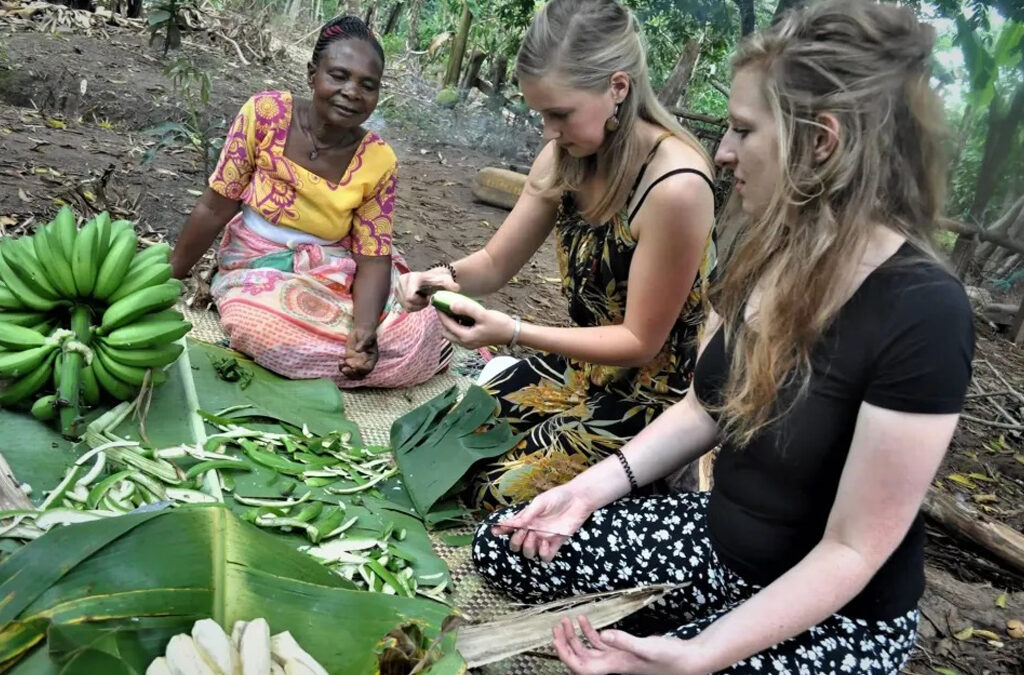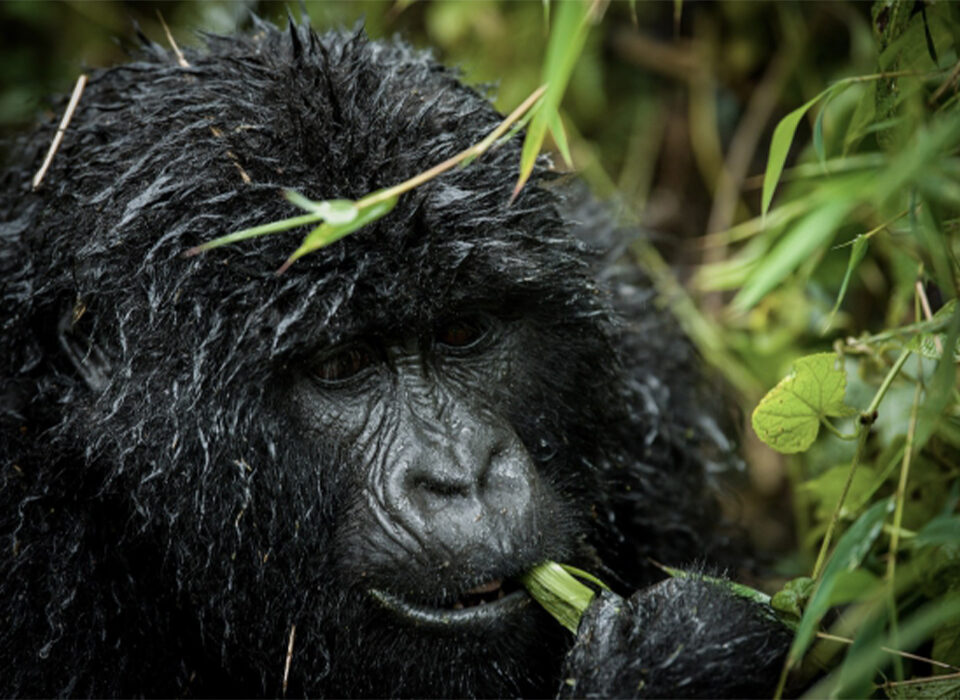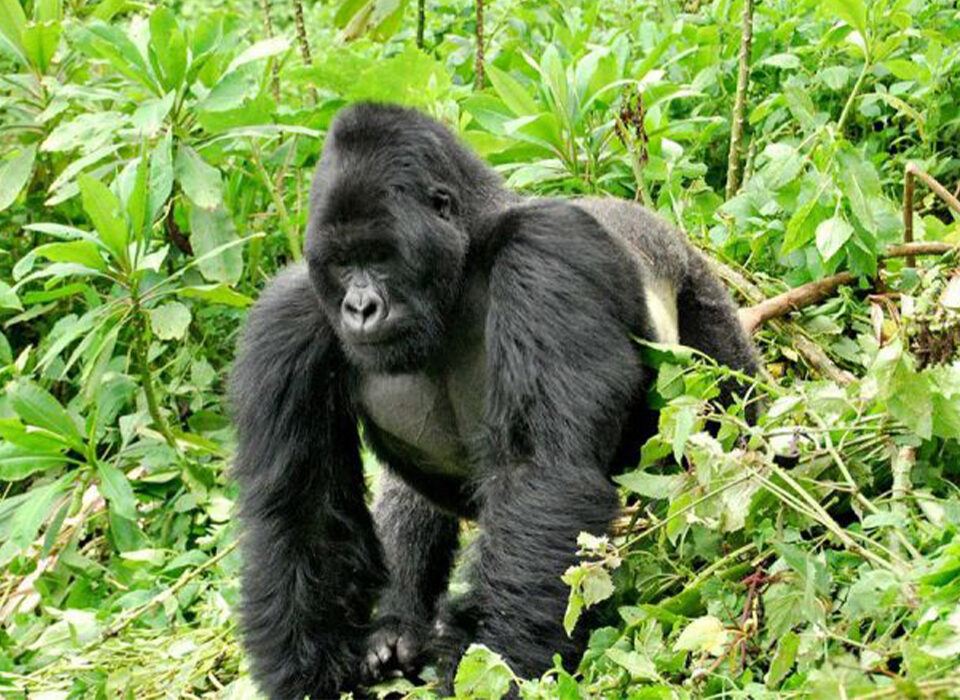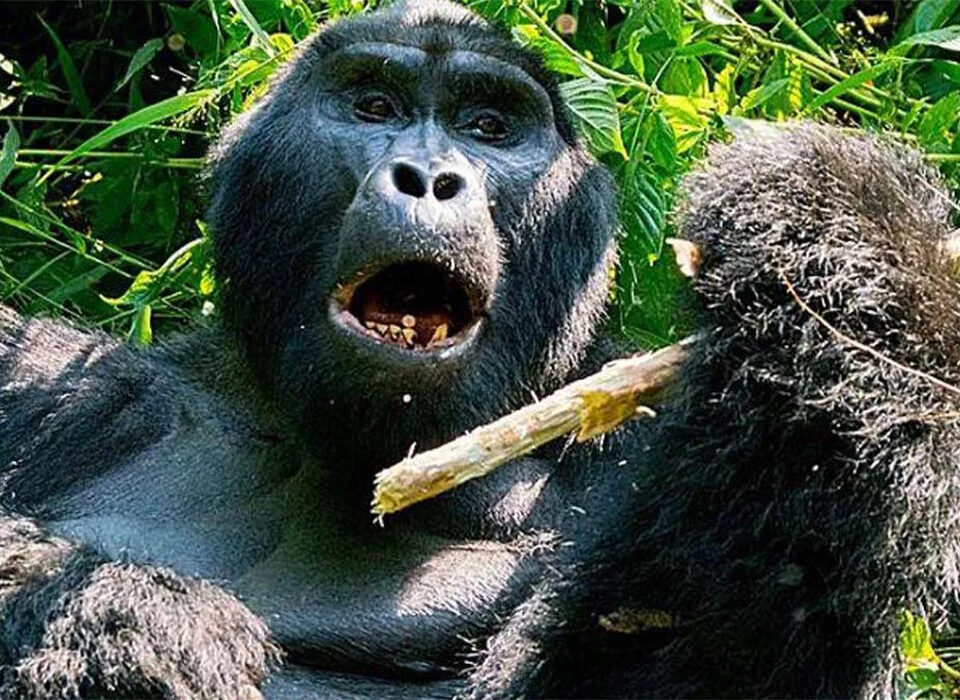
1-Day Uganda Gorilla Trekking Tour from Kigali
October 1, 2025
Planning a Gorilla Safari Yourself
October 1, 2025Gorilla Trekking and Cultural Experience in Uganda

Gorilla trekking and cultural experiences in Uganda combine the extraordinary adventure of encountering mountain gorillas in their natural habitat with immersive exploration of the country’s rich traditional heritage. Bwindi Impenetrable National Park is the primary location for these unique journeys. The park not only hosts more than half of the world’s remaining mountain gorilla population but is also surrounded by vibrant communities offering authentic cultural encounters.
This powerful combination allows travelers to witness endangered primates thriving in ancient forests while also gaining deep insights into the indigenous peoples who have coexisted with these landscapes for millennia. Together, they create safari experiences that celebrate both natural and cultural conservation.
Mountain Gorilla Trekking in Bwindi Impenetrable National Park
Uganda’s Gorilla Conservation Success
Uganda stands as a global conservation success story. More than half of the world’s remaining mountain gorillas are protected within Bwindi Impenetrable National Park, a 331-square-kilometer ancient montane rainforest and UNESCO World Heritage Site.
The park hosts 19 habituated gorilla families distributed across four distinct sectors, offering exceptional opportunities for close encounters with these endangered primates. Conservation efforts have led to steady population growth over recent decades, transforming mountain gorillas from critically endangered to endangered with improving survival prospects. This success reflects community-based conservation approaches that balance wildlife protection with local economic development.
The Gorilla Trekking Experience
Gorilla trekking is one of the world’s most thrilling wildlife adventures. Experienced Uganda Wildlife Authority rangers lead treks, sharing their knowledge of gorilla behavior, forest ecology, and tracking skills.
The journey begins with a comprehensive briefing at sector headquarters in Buhoma, Ruhija, Rushaga, or Nkuringo. Guides explain safety protocols, conservation regulations, and details about the gorilla family to be visited.
Trek durations vary greatly—sometimes a 30-minute walk, other times a multi-hour climb through dense vegetation, muddy slopes, and steep terrain. This unpredictability adds to the adventure, making each trek unique.
Once gorilla families are located, visitors spend exactly one unforgettable hour observing them from a minimum distance of seven meters. This magical time allows travelers to photograph family interactions, witness gentle behaviors, and experience profound emotional connections with our closest relatives.
Permit Requirements and Planning
A gorilla trekking permit costs $800 USD per person for foreign non-residents. These fees directly support park management, anti-poaching patrols, veterinary care, and community projects that provide sustainable alternatives to forest exploitation.
Booking permits well in advance—especially during peak seasons from June to September and December to February—is essential, as they often sell out 3–6 months ahead. Early planning ensures preferred trekking dates, time for physical preparation, and necessary travel arrangements.
Immersive Cultural Experiences Near Bwindi
The Batwa Cultural Trail and Indigenous Heritage
The Batwa, historically known as “Keepers of the Forest,” lived as hunter-gatherers in Bwindi and Mgahinga forests for thousands of years before their eviction in the early 1990s when the forests became protected parks. Today, cultural trails help preserve and share their heritage.
The Batwa Trail in Mgahinga Gorilla National Park
This full-day experience immerses visitors in traditional forest life. Batwa guides demonstrate ancient hunting techniques, medicinal plant use, and ecological knowledge passed down for generations.
The highlight is a visit to the sacred Garama Cave, once a site for ceremonies and shelter. Here, Batwa guides perform traditional songs and dances, creating a moving cultural experience.
The Batwa Experience in Buhoma
For travelers with limited time, the shorter Batwa Experience near Buhoma provides accessible introductions to indigenous traditions. Activities include fire-making, plant identification, and craft demonstrations such as basket weaving and tool-making.
These initiatives not only preserve Batwa culture but also generate vital income for families while supporting education and community development.
Village Tours and Local Artisan Encounters
Nkuringo and Buhoma Community Walks
Guided village walks around Nkuringo and Buhoma introduce visitors to the daily life of the Bakiga people who farm the steep hillsides bordering Bwindi. Blacksmiths showcase traditional metalworking, while herbalists share knowledge of medicinal plants and natural healing practices.
Traditional Food and Beverage Experiences
Travelers often join in preparing or tasting traditional Ugandan foods and drinks. A favorite experience is banana beer brewing, where local plantains are fermented into a mildly alcoholic beverage used in social gatherings and ceremonies.
Craft Demonstrations and Artisan Skills
Local artisans demonstrate skills such as basket weaving, pottery, and textile dyeing. These crafts provide both cultural insight and income, with many visitors purchasing handmade souvenirs.
Urban Cultural Experiences in Kampala
Ndere Cultural Centre Performances
For those starting or ending their journey in Kampala, the Ndere Cultural Centre offers a vibrant introduction to Uganda’s ethnic diversity. Evening shows feature traditional music, dance, and storytelling with colorful costumes and authentic instruments.
Each performance highlights the cultural expressions of Uganda’s many ethnic groups, from the Baganda to the Karamojong. Audiences gain both entertainment and education, learning the histories and contexts behind each tradition. Visitors can also enjoy authentic Ugandan cuisine, making it a complete cultural evening.
Combining Wildlife and Cultural Experiences
Comprehensive Safari Itineraries
The most rewarding safaris in Uganda combine gorilla trekking with cultural immersion. Mornings often focus on demanding treks, while afternoons are reserved for relaxing yet enriching cultural activities.
This balance highlights the interconnectedness of wildlife conservation and community well-being. Sustainable tourism ensures that protecting gorillas also supports local livelihoods, creating a shared incentive to preserve nature and heritage.
By combining wildlife encounters with cultural exchanges, travelers leave Uganda with not only memories of extraordinary animals but also meaningful connections with its people. Such experiences deepen understanding, inspire conservation, and support the long-term sustainability of both natural and cultural treasures.



